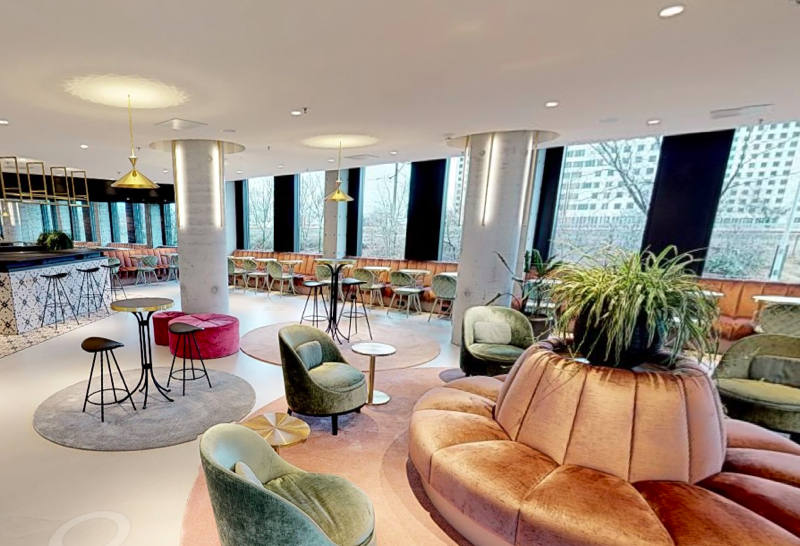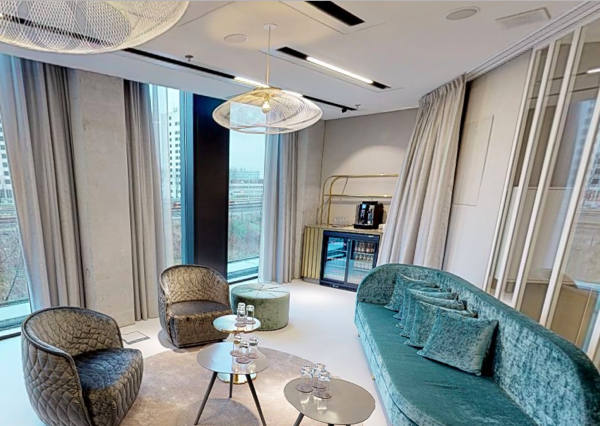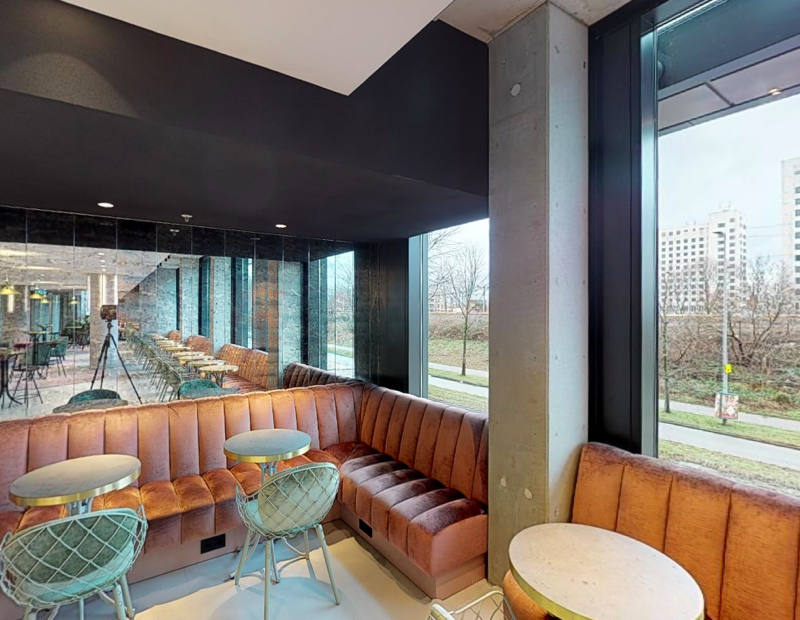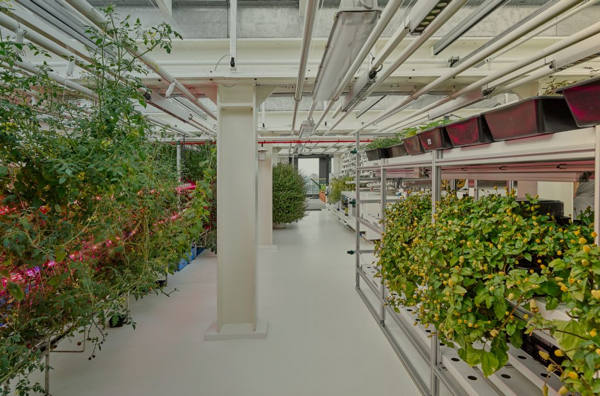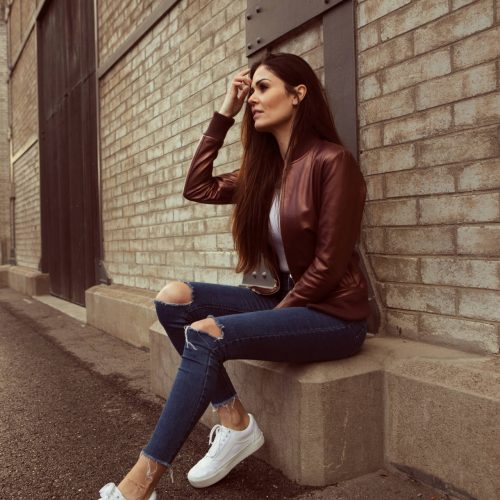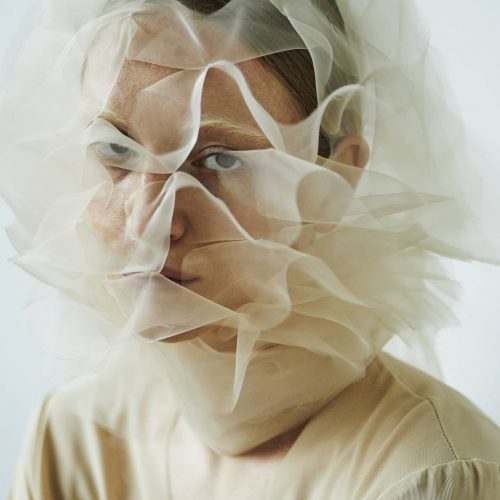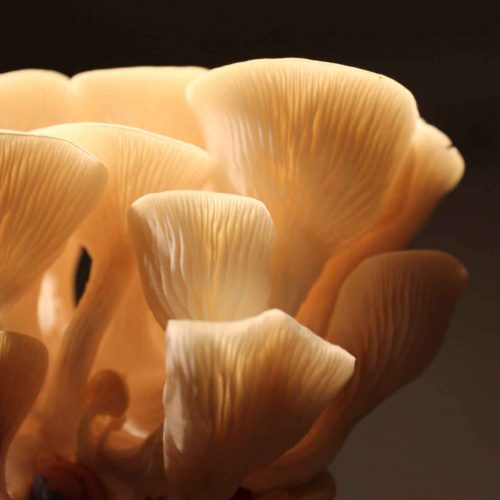Sustainable destinations in Amsterdam: Top Hot Spots
Did you know that Amsterdam Metropolitan Area is home to more than 100 fashion houses? And that lots of established labels, luxury designers and ambitious startups alike located there are collaborating on innovative sustainable materials and disrupting the status quo of ‘take-make-waste’? Yes, the tulipan capital of the World is trying to become an even better place to live, work and visit.
We wanted to see it with our own eyes. Last 4 and 5 April, we made a two-day tour to the city to embrace the most sustainable and beautiful destinations there. Yes, the sustainable scenario in Amsterdam surprised us. This sustainable lifestyle guide will surely help you pick the perfect spot to shop, eat or relax being true to your values. It will help you to meet the people driving the change in the city.
Sustainable Culture in Amsterdam
Fashion For Good, Museum and Store
Our first stop and our first recommendation before getting lost on the sustainable side of the city is Fashion for Good and its world’s first Interactive Museum, created to make the fashion industry more sustainable. Did you know that the apparel industry account for an estimated 8% of the world’s total greenhouse gas emissions, nearly as much as the European Union?
At Fashion for Good you can discover, for instance, new natural fibers and innovative yarns, the importance of the circular fashion process, transparency and traceability as the new "must" or the journey and the real cost of a t-shirt. Yes, because behind our t-shirt lies a process wit huge negative impacts on people and planet. Globally, about 20% of water pollution can be traced to the dyeing, washing and finishing of textiles.
You can also meet companies that work to make you able to see where your clothes were made, how they were made and who made them thanks to an App! Or others, such as Good on You, that help you to compare the sustainability of brands whenever you shop.
It is amazing all you can learn at this Museum. We also recommend the store Fashion for Good. It is also fantastic, with a curated selection of sustainable Brands changing the future of fashion. There you can also get a copy of Luxiders Magazine, of course!
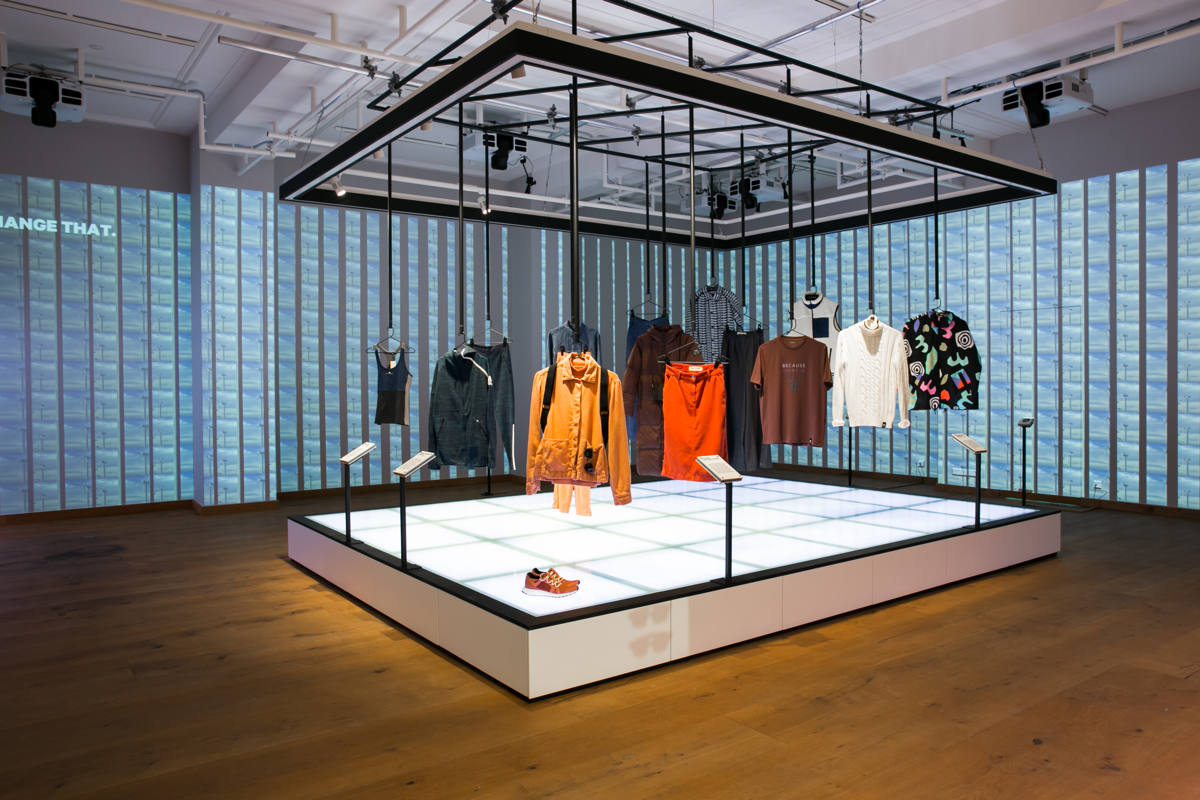
Sustainable Shopping
Sukha
Haarlemmerstraat, 110
Sukha is a cosy flagshipstore in the heart of Amsterdam. It is a place where beautiful things are conceived, developed and created. Everything they sell, from fashion to furniture and from accessories to art, comes with a complementary dose of Sukha – ‘joy of life’ in Sanskrit–. They stand for sustainable production and take great care in selecting unique items that are handmade from natural materials and are often locally designed.
The clothes, furniture and accessories that they produce under the Atelier Sukha label are made of pure, natural materials like wood, wool, linen, cotton, lokta and cashmere.
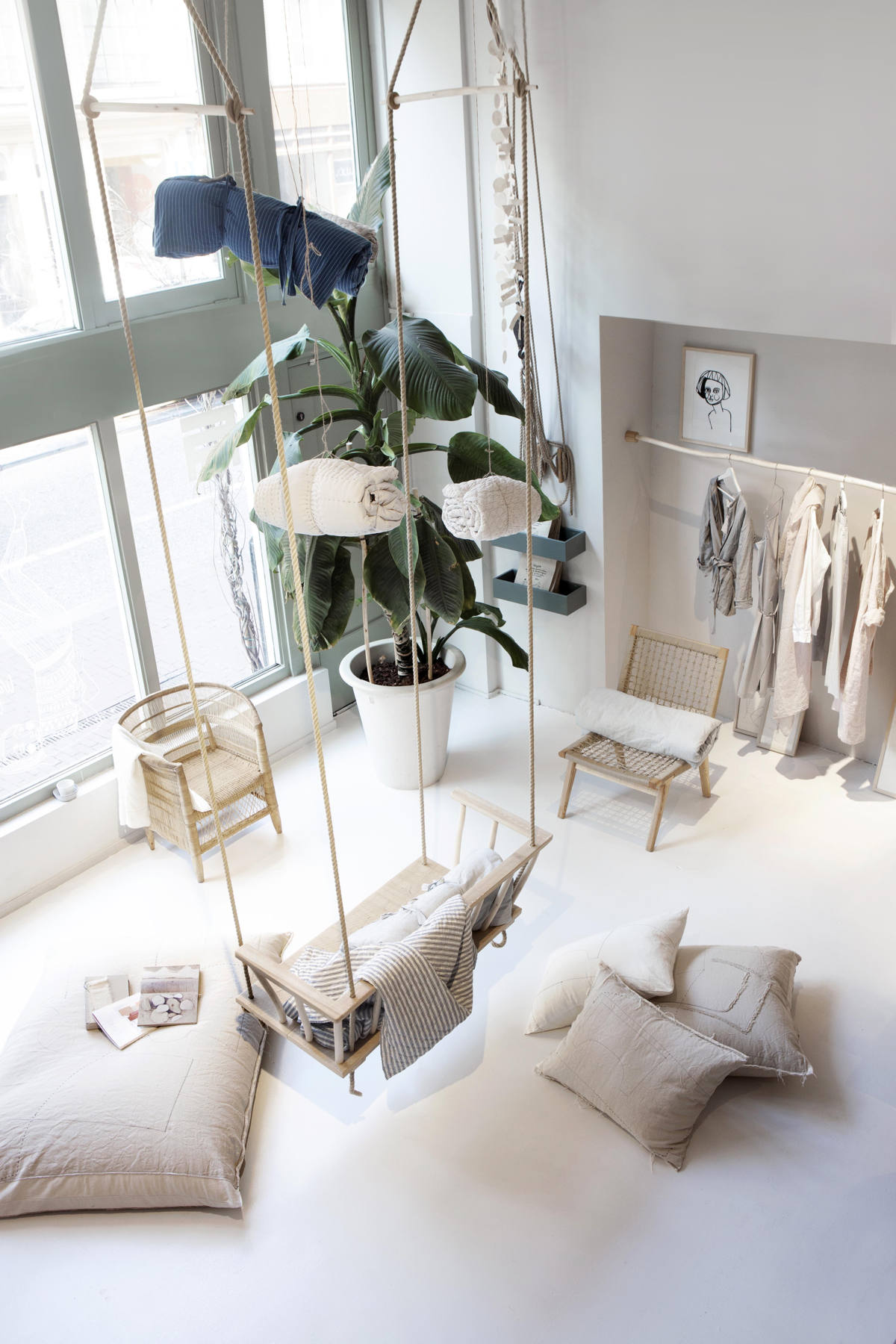
Geitenwollenwinkel
Utrechtsestraat, 37
Located on the Utrechtsestraat, one of the most beautiful shopping streets of Amsterdam, Geitenwollenwinkel Store is a must visit to celebrate the organic, eco and vegan lifestyle that associated with the term ”goat wool shop”. And you can get a copy of Luxiders Magazine there! ;O)
The brands they sell there are green, honest and vegan. This means they only work with sustainable fabrics (such as organic cotton or Tencel), produce under strict fair trade principles and no animals were harmed what so ever. A few of the brands they have are: Kowtow, Matt & Nat, Kings Of Indigo or Melissa Shoes.
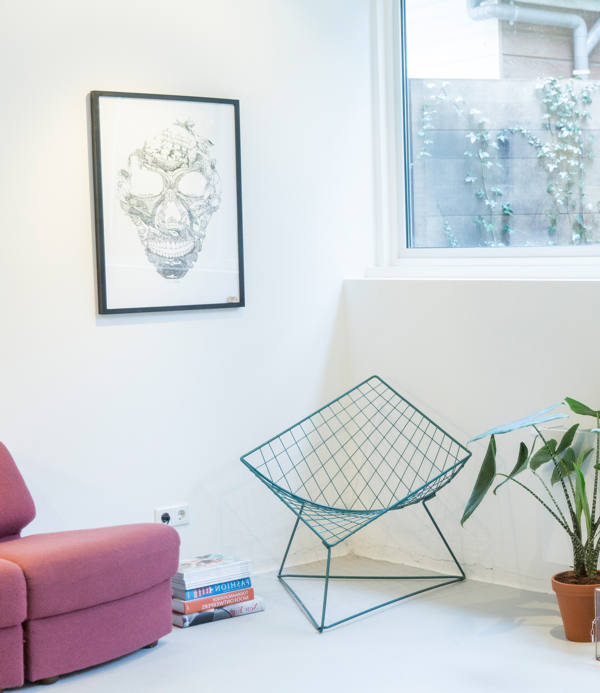
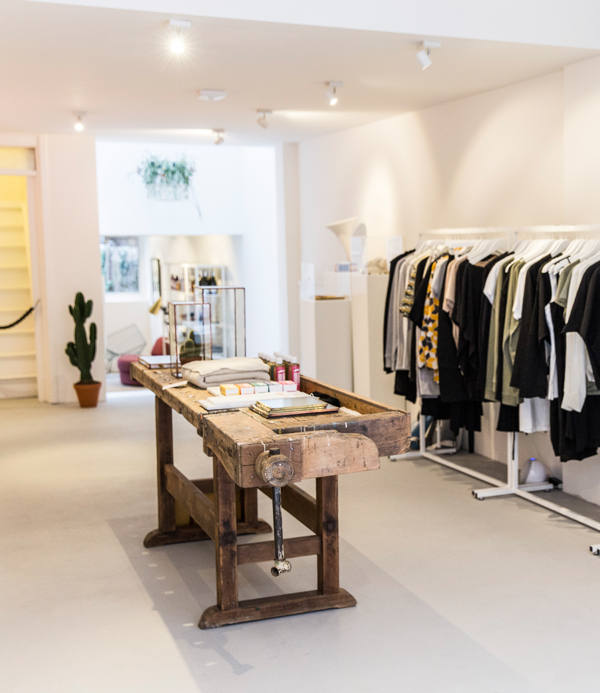
Crafted Society
Prinsengracht, 475h
Crafted Society is a luxury brand that create exquisite hand crafted products with the most talented artisans of Italy and use the products as a vehicle for positive social impact while simultaneously helping to preserve authentic and traditional craftsmanship. The 25sqm fitting room is like a highly curated living room where you can find sneakers, bags, hats, shalls… The brand was launched in 2017 with the purpose of using the power of transparent craftsmanship to inspire, empower and educate the next generation. Martin Johnson and Lise Bonnet, the co-founders, through their 1% PLEDGE, support non-profit organizations in educating the next generation to become the best human beings they can be. “To preserve the crafts, the artisans must transfer their knowledge to the next generation but this is an increasingly difficult task, mainly due to the 'secrecy' which has surrounded these talented humans for decades” – says Martin Johnson. The company thinks it is time to challenge convention through transparency.
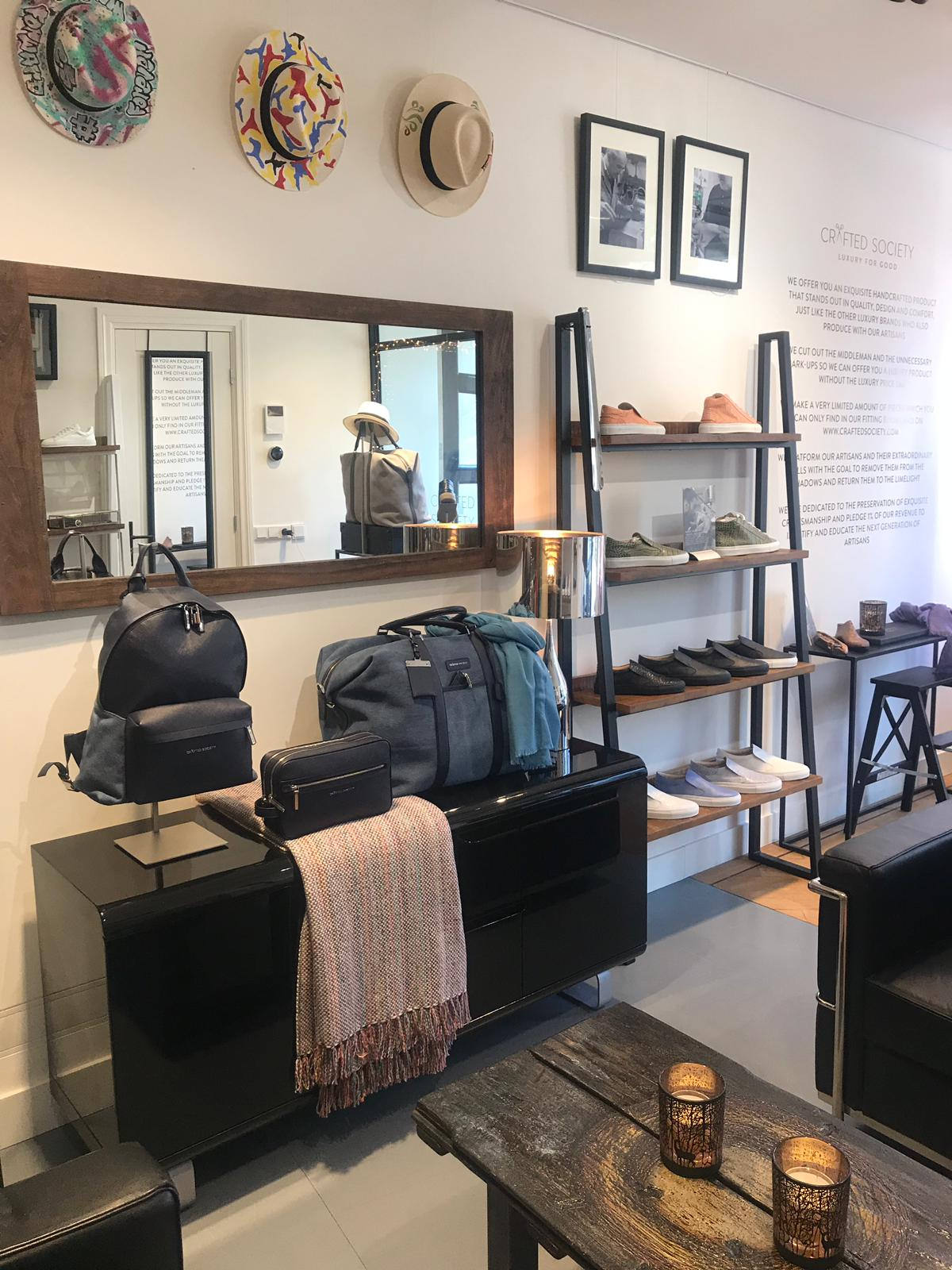
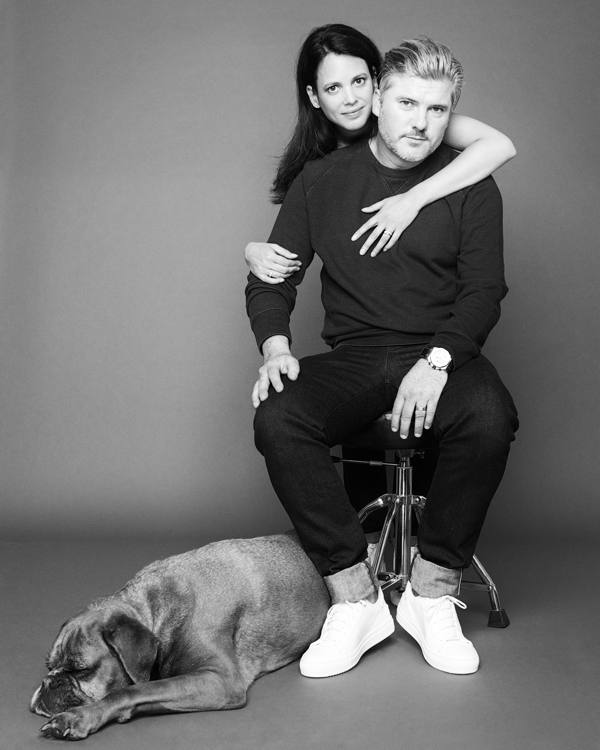
Verse
Prinsengracht, 581
Verse is the one stop shop for the consumer who cares about what they put on their body. Ciara Shah started Verse in 2016 as her answer to being "woke" from a decade of working in the fashion industry. She wanted a way to express her voice and opinion about the state of the fashion industry and show that it is possible to buy positive garments, accessories and lifestyle products. After a lot of thought, Verse was born as a concept where she pulled together the Creme de la Creme of ethical fashion brands, clean beauty and local goods.
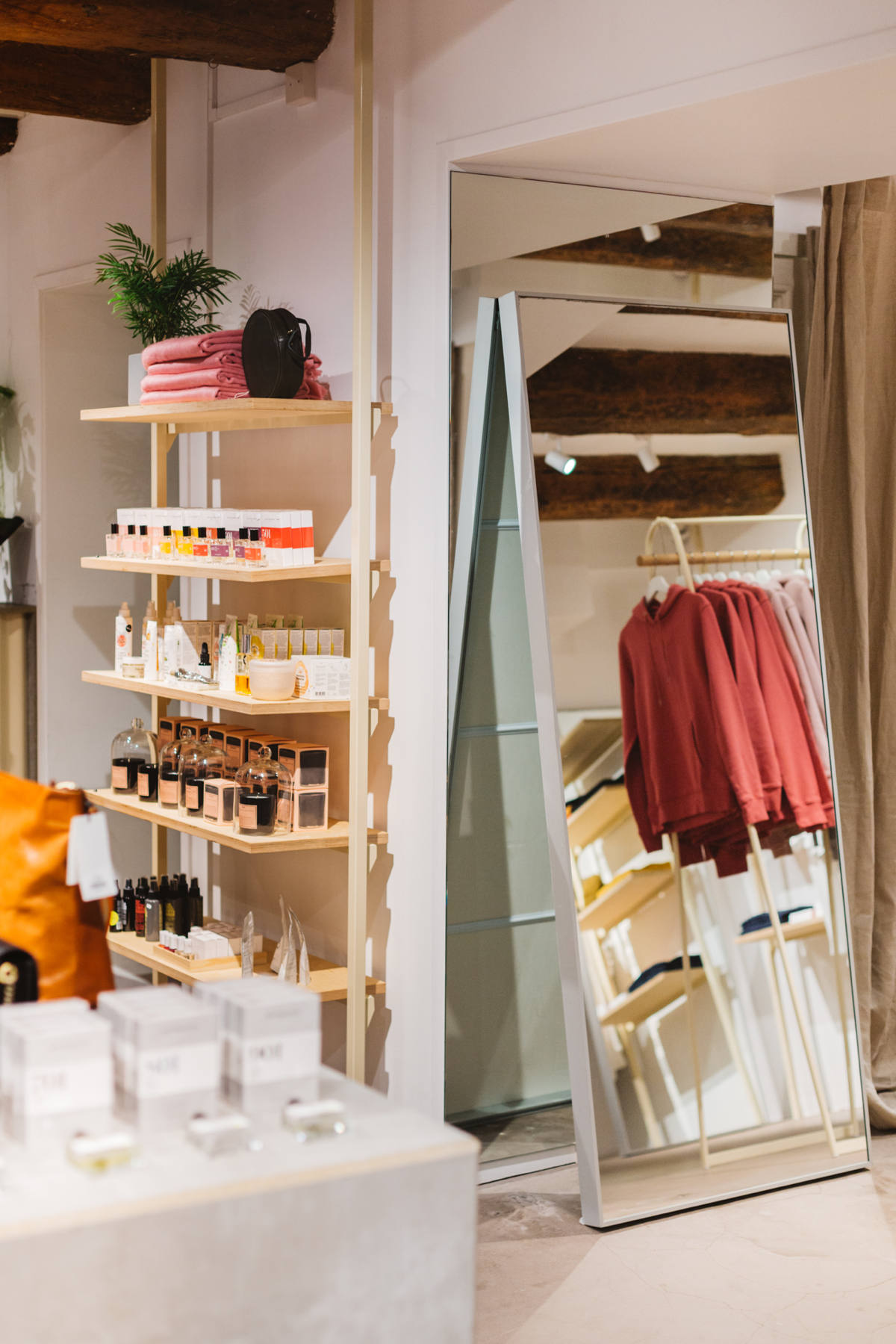
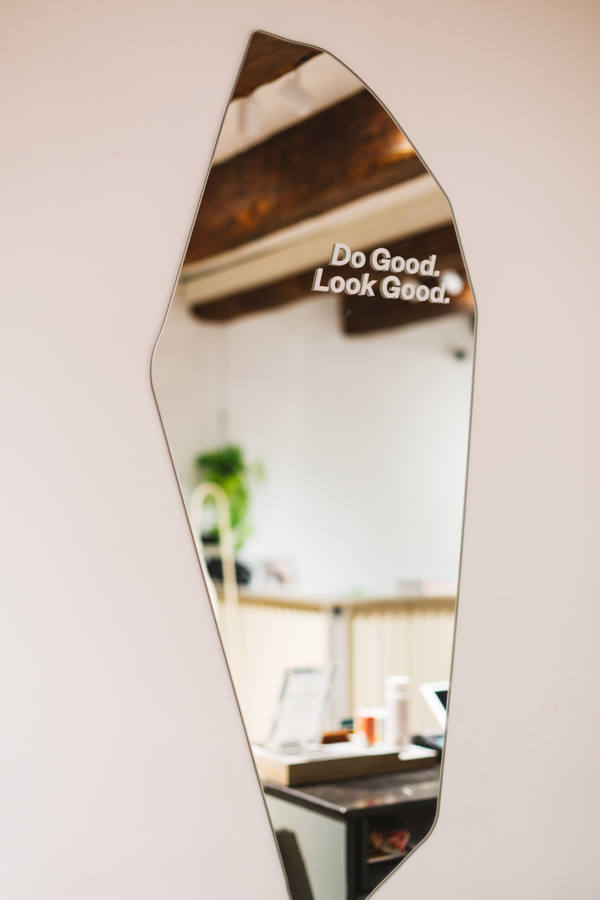
Unrecorded
Hartenstraat, 36
Unrecorded is a clothing label that sells organic basics of the highest quality. The company ensures that all the garments are produced by responsible manufacturing partners using sustainable methods and materials. The fabric they use is all GOTS certified (GOTS is the world's leading processing standard for textiles made from organic fibers). “What Patagonia does for outdoor apparel we want to do for urban apparel”– say Jolle & Daniel, founders of the label. For those who are looking for honest basics, long-lasting and thorough down to the last retail, Unrecorded is a good choice.
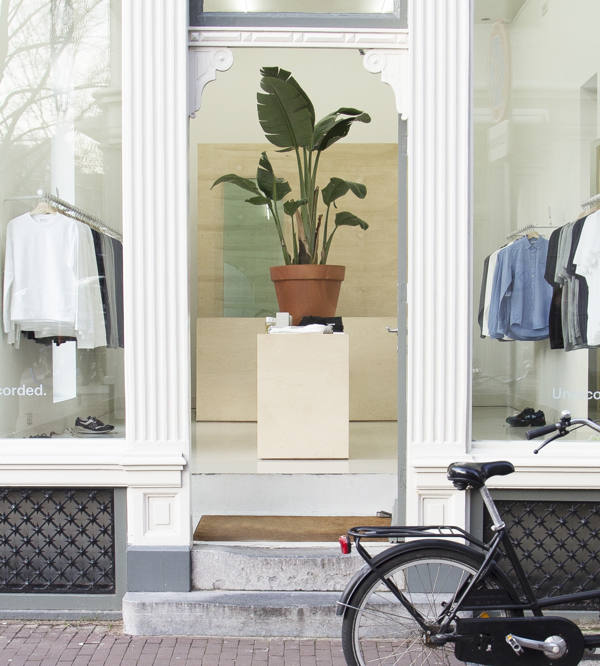
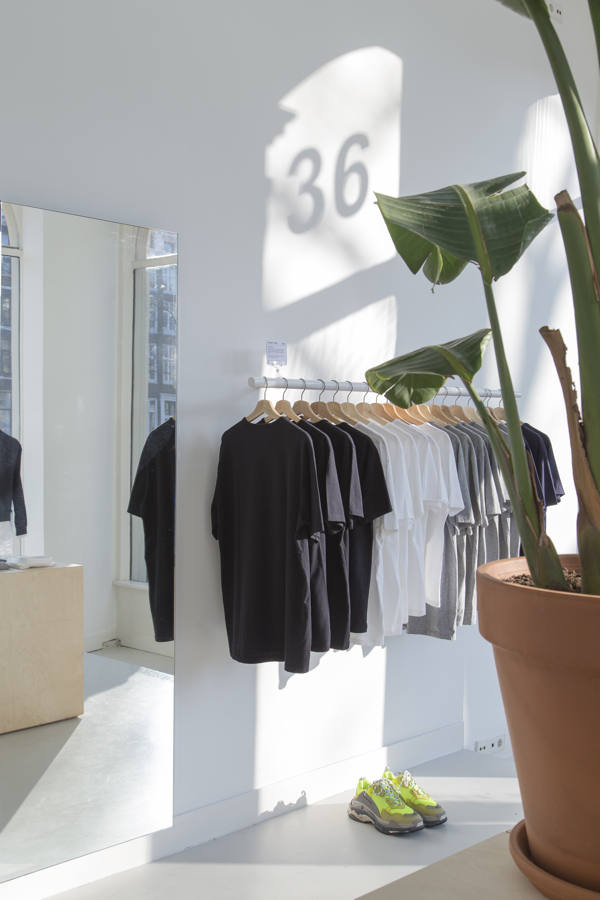
Sustainable Restaurants in Amsterdam
INStock
Czaar Peterstraat 21
Are you ready to rescue food? Instock fights food waste by turning food surplus into delicious meals. This restaurant picks up unsold products al local Alber Heijn Supermarketss and other producers –blemished fruits and vegetables, one-day-old and meat and fish surplus–, and create with them the most wonderful dishes. We have taste them and yes, this is the most delicious experience we had in Amsterdam. Also, we would like to applause the daily creativity of the chefs (they never know which products will be old day by day).
But why would we just save food at Instock if we can already start with products at home? They have written a cook book, a good guide to learning preserving methods and delicious recipes.
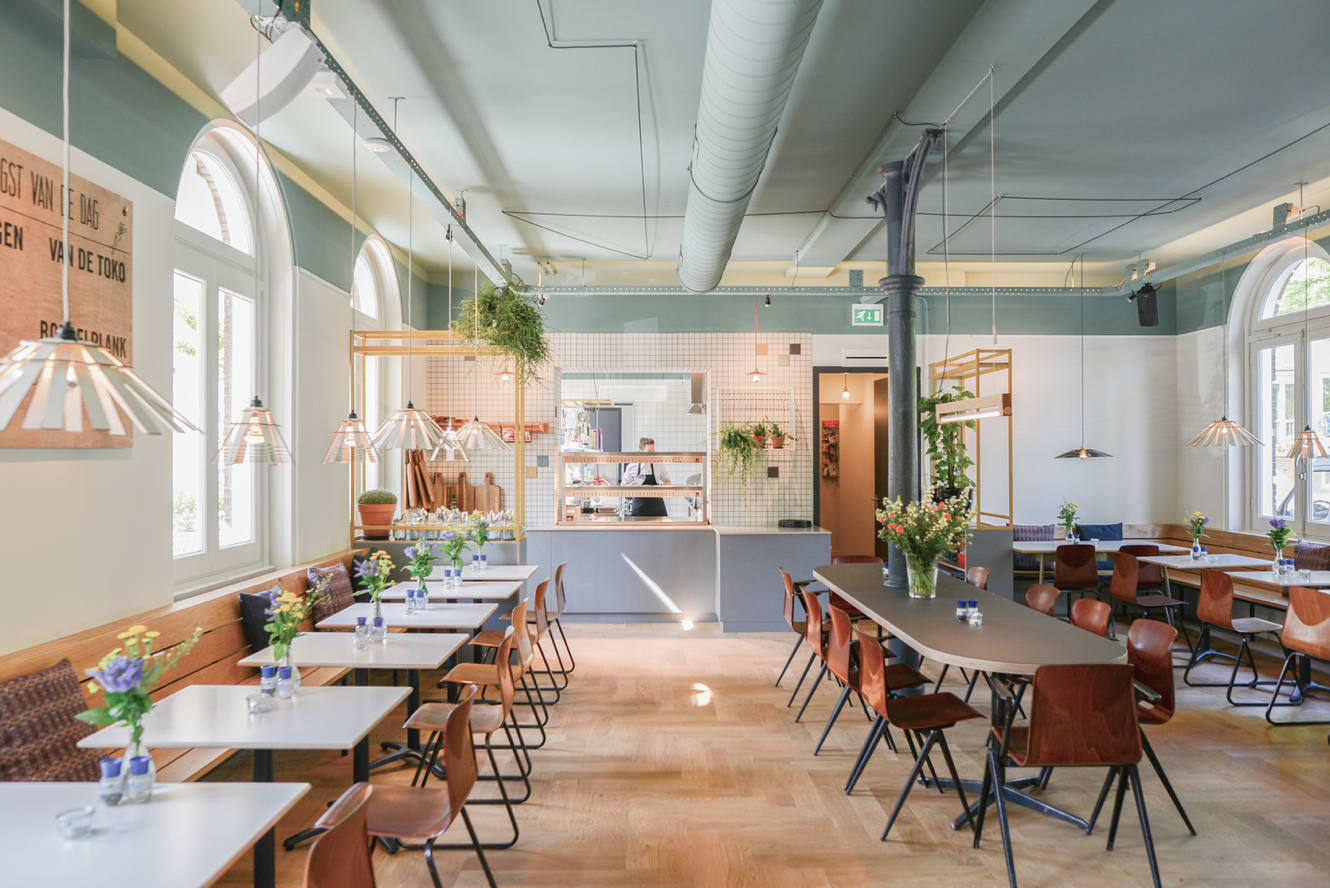
De Kas
Kamerlingh Onneslaan 3
You can not leave Amsterdam without having lunch at De Kas. The restaurant is located in a set of greenhouses which date back to the 1920s and used to belong to the Amsterdam Municipal Nursery.
As food tastes best when it is prepared with the freshest local ingredients, they grow their own herbs and vegetables. Harvesting in the field takes place at sunrise everyday so that the restaurant’s guests can enjoy the freshest possible ingredients. They daily create one fixed menu based on the harvest of the nursery, supplemented with the best additional ingredients from local suppliers. On fine summer days, lunches and pre-dinner drinks are served outside on the patio in the herb garden.
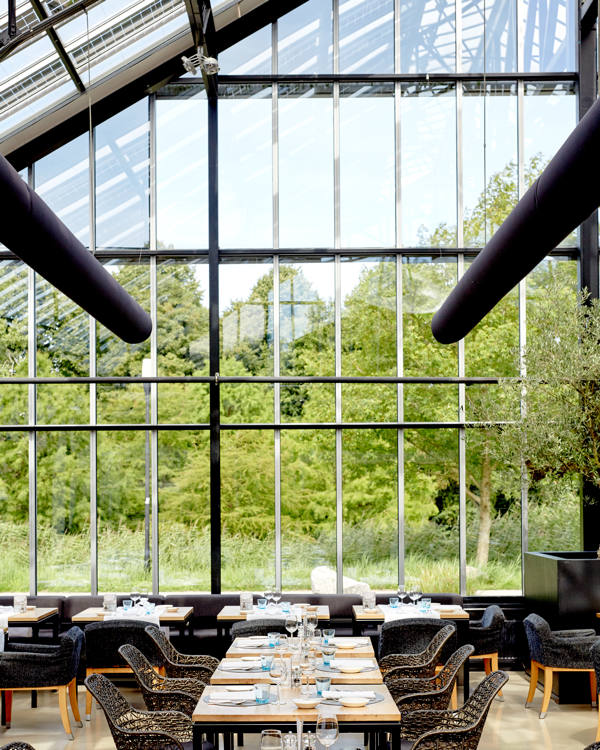
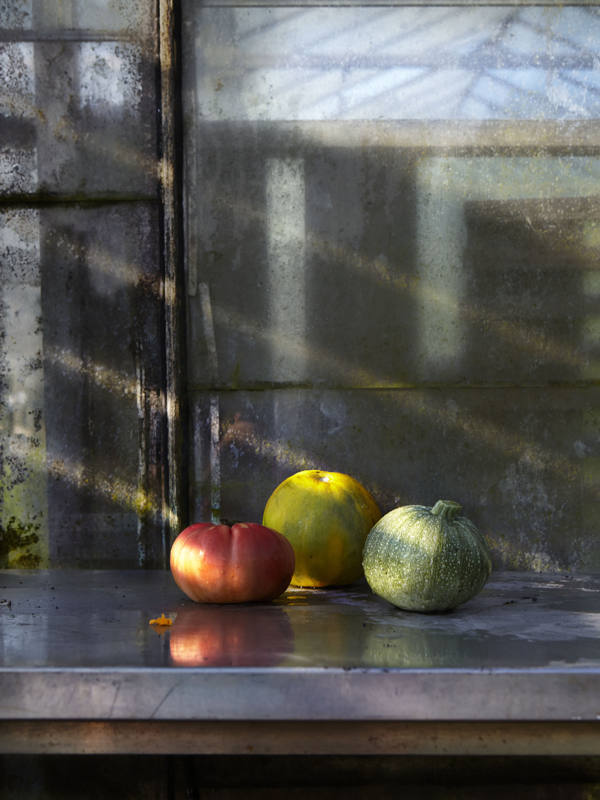
Sustainable Hotels in Amsterdam
Hotel Jakarta
Javakade 766
Hotel Jakarta is a spectacular building with a sustainable, industrial character, lots of transparent glass facades and a unique 30 meter high wooden main support structure. The beams, columns and ceilings are made of natural wood. The materials chosen are durable and have the FSC or PEFC quality mark. Almost all the used elements that have a short life span or are recyclable are reused by disassembly.
Insulation, installations and innovations … These smart applications make Hotel Jakarta Amsterdam one of the first energy-neutral hotels in the Netherlands. The hotel employs many energy-saving measures. Rainwater is collected to spray the subtropical indoor garden. PV panels in the facade and in the roof of the atrium collect, solar energy that is converted into electricity and heats the shower water. A warmth- and cold storage system will take care of heating and cooling the hotel. Even the staff will wear sustainably made company clothing, designed by fashion label By Rockland | HACKED by.
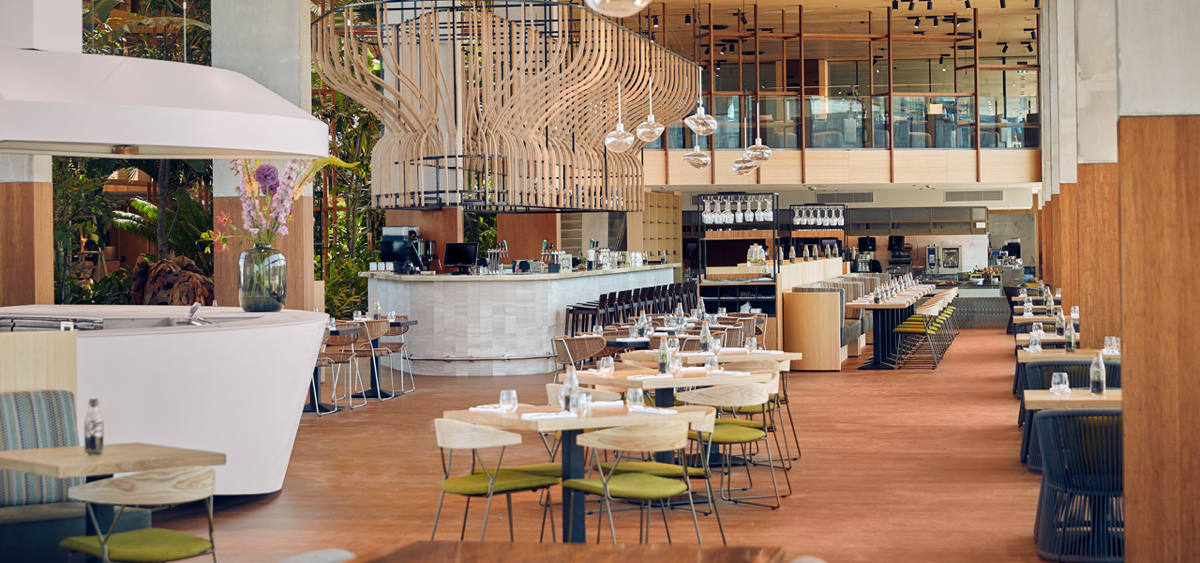
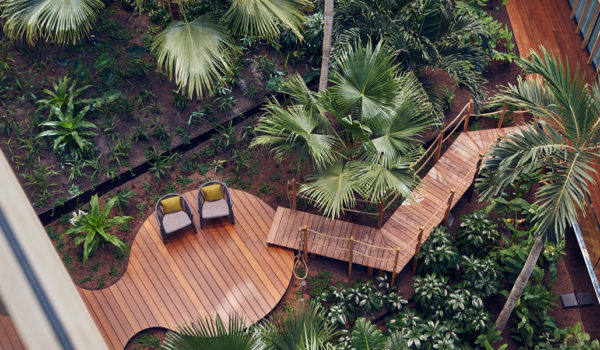
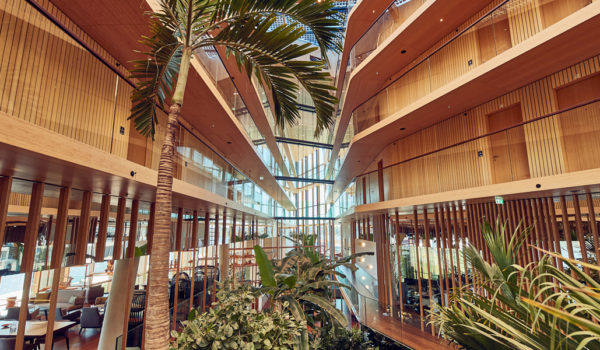
HO Hotel
Javakade 766
A visionary lifestyle destination, the QO Hotel was born of the need to stop the wasteful, one-use approach to hospitality. Instead, they want to prove that embracing a sustainable, circular approach is the only way to create a genuinely positive impact – for both people and planet. Their greenhouse is the perfect example of how they envisage a living building. And what it means to make that a reality. By developing a fully functioning, self-sufficient and self-regulating ecosystem, they have created an active approach to circularity that filters through every floor of the QO. It connects the layers of the hotel by growing specialist and distinctive fruits, vegetables, herbs – and even fish – to provide produce that’s enjoyed from Persijn all the way up to Juniper & Kin. And is a vital part of their production.
The exterior of the QO is one of the most visible elements of circularity that shape this living building. Made up of a series of fully responsive thermal panels, it adapts and reacts to the climate outside the hotel, working as one or individually to control the temperature inside. Whether that’s creating extra insulation on cooler days, or letting the sunshine flood in to warm us, the hotel keeps its energy footprint low by only using what it needs. The building breathes in tune with the seasons.
